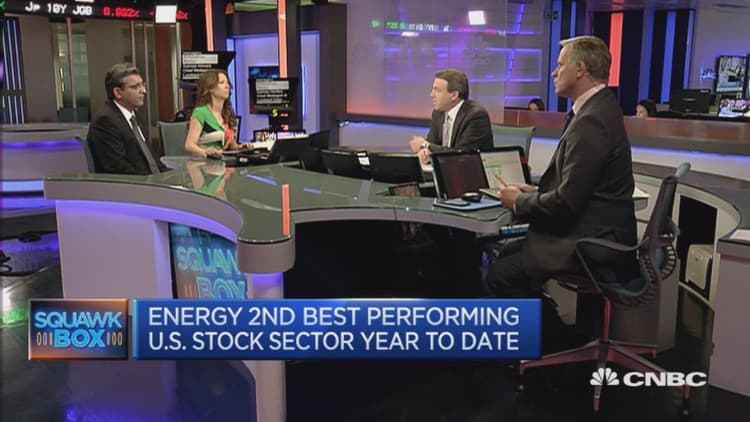The debt market may be "broken," like renowned debt investor Paul Singer says, but that does not mean it's heading for sudden collapse, an investment strategist told CNBC on Friday.
In a recent letter to investors seen by CNBC, Paul Singer's Elliott Management said the bond market was "broken" and the end of the current environment would likely be "surprising, sudden, intense and large."
On Friday, Salman Ahmed, chief investment strategist at Lombard Odier Investment Management, told CNBC he agreed with the first point, but not the latter. He said the heavy participation of central banks in the market — and their deep pockets — would prevent a sudden collapse and denied the market was in a "bubble."
"If the bond market was owned by private individuals like us, who do not have a printing press, this is a bubble. Because when the liquidity falls through we will run out of cash, then the bubble will collapse. If the bubble is injected by a player that has unlimited (access) to a printing press then this bubble can go on," Ahmed told CNBC.
Around one-third of outstanding bonds are held by central banks, the strategist said.
"Fixed income is now a policy tool. It is not an asset class anymore, especially sovereign bonds and I think we have to get used to it," he told CNBC.
Treasury yields
U.S. Treasurys
Government bond-buying programs from major central banks like the Bank of England have helped push bond prices ever higher and yields lower. (Bond yields move inversely to prices). These asset-buying programs, coupled with negative-interest rate polices from the likes of the European Central Bank, mean the global stock of negative-yielding sovereign debt now stands at over $11 trillion, according to Fitch Ratings.
Singer, who is best known for suing Argentina over its debt defaults, said in his letter that the world was in the "biggest bond bubble in world history" and advised investors to avoid sub-zero-yielding debt.
"Hold such instruments at your own risk; danger of serious injury or death to your capital," he said.
Ahmed added that what would really cast a doubt on central banks' policies would be a rise in inflation, driven by a major recovery in oil markets. WTI crude oil has rallied this year toward $50 per barrel, but remains sharply below the levels above $100 seen prior to the commodities rout of July 2014 onward.

"If the bond market is more than 30 percent owned by the central bank, I think the rules of the game have changed. They can really influence and price risk at levels they want," Ahmed told CNBC.
"However, if oil were to go up to $75-80 (per barrel) and we do get a huge impulse of inflation across the globe that will probably put into question the credibility of the central banks."

